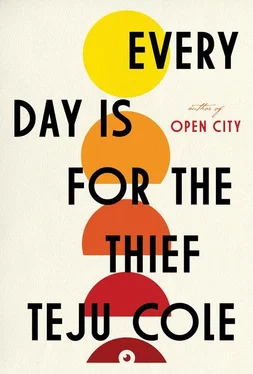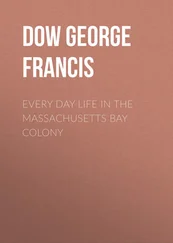And that is the depth of it. The Atlantic slave trade, with hundreds of thousands of our compatriots sold, tortured, murdered, was an “obnoxious practice.” This under-whelming text was doubtless written by a colonial officer, probably a few decades ago, but someone else keeps it hanging there, year after year, as an official Nigerian response to slavery. As I read the plaque devoted to each regime, my spirit sinks further. The alleged achievements of each military ruler are listed. The historical record — and again, this is the National Museum — is sycophantic, inaccurate, uncritical, and desperately outdated, as if each dictator was sent a form to fill in with his “achievements” and it was left at that. I don’t know how to make sense of what I am looking at. It is as though there is the idea that a national museum is a good thing to have, but no one has the interest or ability to present it properly. History, which elsewhere is a bone of contention, has yet to enter the Nigerian public consciousness, at least judging by institutions like the museum.
The narratives on the three most recent regimes, printed on paper, are tacked near the end of the circular gallery. No one could possibly form a positive impression of Nigeria on the basis of this museum. The worst of the butchers that ran the nation aground are celebrated, without exception. Abacha is there, in his dark glasses. Babangida is there, with his grin. The sequence of posters gives an impression of orderliness and continuity in Nigeria’s postindependence history, and no analysis of the coups and countercoups that were the rule rather than the exception for changes of regime. What, I wonder, are the social consequences of life in a country that has no use for history? It brings to mind the brusque retort uttered by a character in John Sayles’s film Men with Guns in response to a tourist’s query: “Atrocities? No. No atrocities happened here. That happens in other countries.”
When I step out of the shed, the woman at the front desk is slumped over, fast asleep. The time is 1:00 P.M. I walk out of the museum in bad spirits, and I don’t really recover until I visit a nearby buka for some pounded yam and egusi soup.
There could hardly be a stronger contrast to the National Museum than the MUSON Centre, which I visit later on the same afternoon. MUSON was founded in the 1980s and has since that time come to play a leading role in the musical and theatrical life of the country. The grounds of MUSON — the word is an acronym for the Musical Society of Nigeria — are well organized, featuring three main buildings. One houses a world-class auditorium and recital hall, the second is a conservatory, and between the two, set on a pristine lawn, is an upmarket restaurant called La Scala. The creative energies so sorely lacking in the National Museum seem to have been vested here. And clearly, wealthy people are interested in what happens at MUSON. In the parking lot, cars and SUVs gleam in a long, aspirational row: Lexus, BMW, Mercedes-Benz, Audi. Yet the compound is not designed like a fortress, and one has a sense that this is a place for genuine music enthusiasts, that it is not just a playground for the rich and well connected. I have no problems walking right in, though I have no official business to conduct.
Large posters in front of the auditorium announce recent and upcoming shows: a Christmas gala, a choral performance, a fund-raiser for Nigerian breast cancer charities. There is a flyer for a jazz concert featuring the South African trumpeter Hugh Masekela in an appearance with Lagbaja, the most innovative of the current crop of Nigerian musicians. Most fascinating of all is the announcement of a performance of a Molière play by a professional company visiting from France. Culture, at least in this one corner of the city, seems to be alive and well.
The best thing about MUSON is that it is well organized. Better organized, in truth, than I’ve come to expect anything in Nigeria to be. And yet, it is a largely private venture. Perhaps that is the secret. They know the importance of presentation: the buildings are well maintained. I see several busy gardeners during my visit, patiently potting miniature palms. And MUSON also knows the value of running a nonprofit organization in partnership with corporations: the Agip Recital Hall is named for an oil company, as is the auditorium, Shell Hall. There is also a major sponsorship deal with the business consultancy Accenture.
The Nigerian government, that great bungler, is kept out of it. The mere existence of the conservatory surprises me. That it is so well put together is a great pleasure. As I enter the building, it occurs to me that this is an institution that, in terms of setting and infrastructure, could someday rub shoulders with the Juilliard School or the New England Conservatory. I take an irrational pride in the thought. Outside the building, there is a sign that reads: “Muson School of Music. Founded February 13 1989. Provides training in the theory and practice of music.” And below that, in smaller letters: “Individual instructions in singing, violin, piano, flute, clarinet, trumpet, cello and classical guitar for all ages. Graded theory and practical examinations conducted in May and November in several centres in Nigeria.” This is quite literally music to my ears. Cello lessons, in Lagos. I imagine some gifted child spinning her way through the Bach suites, practicing afternoon after afternoon in the heat, the sound of traffic in the distance, until she has full command of the music’s inner spirit, and can bring her hearers into a state of wonder.
I go up to the reception area, and there meet a plump young man with a pencil mustache. He is seated behind a metal desk, and is talking to a woman when I come in. She is lithe, dark-skinned, and wears glasses. He silently motions me to a seat. Then he gets up from behind his desk and walks slowly, ceremoniously, to the other side of the room, brings out a newspaper from a cabinet, and walks slowly back. He sits down again, opens the newspaper, and, pointing to a column in it, says to the young lady:
— And so, that’s what I was talking about. Isn’t that interesting?
He hands her the paper, stares into space meaningfully, and eventually, as if he has run out of things to do, turns to me.
— How may I be of assistance?
I tell him I was hoping he would be able to answer some of my questions about the conservatory.
— What would you like to know?
— Well, for instance, about the foundation of the school, the courses on offer, costs, standards.
He nods thoughtfully, then gets up again, and waddles across the room to the cabinet. He pulls out a small stack of papers.
— These brochures can fill you in on some details. The school was founded in 1989, and we have grown a lot in the past few years.
— How is the school funded?
— Through school fees and by private donors.
Then he adds, jovially:
— You know, a rich guy like yourself can just give us one million naira. Just like that.
He makes a flicking motion with his hand. I turn to the young lady and ask if she is a student. She says she is a student in the vocal program, a soprano. Her manner is sniffy. I ask what kind of music she specializes in.
— Oh, you know, classical and jazz and stuff. I’ll be singing in the fund-raiser next week with the MUSON Orchestra.
— Who is in the orchestra?
— It’s mostly faculty members of the MUSON School.
She has a distracted, birdlike manner. But that’s the extent of my conversation with her. She sits there after that, watching us talk. The receptionist says:
— Depending on what you want, you can have either an expatriate or local teacher.
Читать дальше












